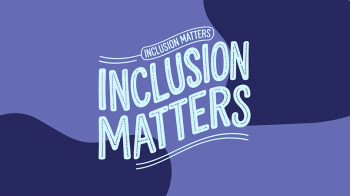Learning a foreign language requires significant effort, and one of the key stages is taking a Spanish language test, which helps assess proficiency levels. Developing a systematic approach is crucial for preparing for grammar and vocabulary tests. Start by studying basic rules and expanding your vocabulary. Regular reading of texts, listening to audio recordings, and watching films will enhance comprehension and give a chance to memorize brand-new words and expressions. A comprehensive approach and perseverance will be your partner in successful passing any exam.
Preparing for Grammar and Vocabulary Tests
Preparation for this kind of test is a vital stage in studying any language, including Spanish. To tackle such assignments effectively, it is necessary to develop a strategy and stick to it throughout your precaution.
Grammar tests include many questions that need to be learned and understood. Such an aspect is the foundation, and to pass the test successfully, you must study the rules, starting with basic aspects such as verb tenses, conjugations, and the agreement of nouns and adjectives. Create a clear structure for yourself to better memorize and organize the rules. Practice regularly: solve exercises, take online tests, and write short texts. Use a variety of study materials: choose those that best fit your degree and education style.
Vocabulary is your word stock, enabling you to express your thoughts and understand others. To pass such a task successfully, you need to expand your dictionary, learning new words and phrases every day. Use flashcards, glossary apps, or note down unknown words in a notebook. You can also take beginner tests and translate contemporary words. Reading novels, fiction, news, and watching films in Spanish will help you remember new words in context, significantly enhancing their comprehending and usage.
If you need additional rehearsal, the TeMa platform offers specialized tutors and a wealth of useful materials. Start your successful Spanish learning journey today!
Effective Methods for Preparing for Grammar and Vocabulary Tests
Preparedness requires systematic and diverse training methods. One key aspect is regular practice. Constant repetition of material reinforces knowledge and makes it more stable. Using textbooks and guides is fundamental for getting rules and structures.
Attention should also be given to practice. Try writing short essays or dialogues using new words and grammatical constructions. Regular reading of books, articles, and news in Spanish broadens glossary and advances text comprehension. Listening to podcasts and watching native films with or without subtitles enhances listening guts.
Here are some interesting and effective preparation methods:
- language exchange: find an exchange partner who speaks Spanish and wants to boost their desired language;
- spanish through art: attend exhibitions dedicated to art or listen to music;
- gamification: use apps and online games for learning; they make the process more enjoyable;
- culinary experiments: cook cuisine dishes using recipes in Spanish. It is not only delicious but also useful for expanding your vocabulary;
- creating a video blog: maintain a video blog in Spanish where you talk about your life, interests, or share your thoughts.
.webp)
Integrating these methods into your study program will make the preparation process for tests not only effective but also enjoyable, significantly increasing your outlooks of success.
Using Tests in the Learning Process to Improve Spanish Proficiency
Using tests in the process to better competence is an effective method that not only assesses the current level of knowledge but also enhances it. Regular test-taking allows identifying weak spots in grammar, vocabulary, and other aspects, focusing on their elimination. Especially useful are queries with answers, as they provide the opportunity to independently check and analyze errors, speeding up the learning process.
Self-tests and online courses offer various exercises covering all aspects: reading, writing, listening, and speaking goods. This comprehensive approach allows improving overall proficiency and getting ready for various exams. For those seeking an individualized approach, the TeMa tutor search platform offers a wide selection of professional teachers who will create a personalized learning plan and provide the necessary materials for measure.
Successful Passing: Tactics and Tips for Taking Spanish Tests
Firstly, it is important to exercise regularly. Do not leave groundwork until the last minute. Gradually increasing the load will help you better remember the material and escape overloading. For example, start taking tests online to get used to the structure and adapt to time constraints. Secondly, pay attention to grammar and vocabulary. Create checklists of recent words and phrases, learning them in context. You will not only remember the words but also figure out how to use them correctly in a sentence.
Thirdly, warm up listening and speaking mysteries. Pay attention to podcasts, watch films and series without subtitles, and communicate with native speakers. This will revamp your listening talent and boost confidence in conversational practice. Fourthly, do not forget about writing skills. Write short essays, letters, or diary entries in Spanish. This will enhance your grammar and performance style. Fifthly, on the eve of the quiz, try to relax and get enough sleep. A good night's sleep improves concentration and memory, which is necessary during the exam.
In summary, key factors for successful test preparation:
- Regular practice and use of diverse resources: Consistent study habits and utilizing a variety of materials and methods.
- Focus on understanding grammatical rules and gaining original words in context.
- Listening and speaking practice: Develop auditory and conversational skills through podcasts, movies, and conversations.
- Enhancement of writing skills: Write essays and journal entries to upgrade grammar and writing style.
- Rest and good sleep before the exam: Ensure adequate rest to enhance concentration and memory.
Successful performance requires systematic preparation and a multifaceted approach. By following the above advice, you can significantly increase your chances of achieving a successful result and confidently tackle any tasks.
Common Mistakes When Taking Spanish Tests and How to Avoid Them
When taking tests, students often encounter several common mistakes. One of the most frequent is misunderstanding the assignment. It is fundamental to read instructions and questions carefully to avoid misunderstandings. Often, students rush and don't pay enough attention to details, leading to misinterpretation of the task.
Spanish has many nuances, such as gender and number of nouns, adjective agreement, and the use of different verb tenses. Even small mistakes can significantly affect the overall result. To bypass these faults, it is recommended to read assignments carefully. Don't rush and read each question several times to fully understand it. This will help avoid misunderstandings and incorrect answers.
Frequent practice helps get accustomed to the format and requirements of the tests, significantly reducing the likelihood of lapses. Additionally, analyzing inaccuracies after each test is an outstanding stage of learning. By reviewing and understanding where and why mistakes were made, you can avoid them in the future. This is especially significant for beginners. Tasks at the beginner level require special attention to details, as basic knowledge forms the foundation for further discovery. Skipping vital aspects at the initial stage can lead to more serious difficulties later. Therefore, it is necessary to devote enough time and effort to working through basic concepts and grammar rules.
Preparing for the Oral Part of the Test and Overcoming Language Barriers: Tips from TeMa
The oral part often causes the most anxiety among students. To handle this task successfully, it is crucial not only to know basic structures and vocabulary but also to be able to express your thoughts freely. Regular practice of speaking mastery with native speakers or other students will help reform pronunciation and confidence in communication.
Using audio materials such as audiobooks, podcasts, and news in Spanish gives an ability to get used to different accents and speech patterns, significantly easing understanding. Assembling for possible discussion topics also plays a key role: with pre-prepared stories or opinions on typical questions, you will feel more confident and avoid long pauses in conversation. If you want to arrange for the oral part of the test and overcome barriers effectively, visit the online tutor search site TeMa!


-preview.png)